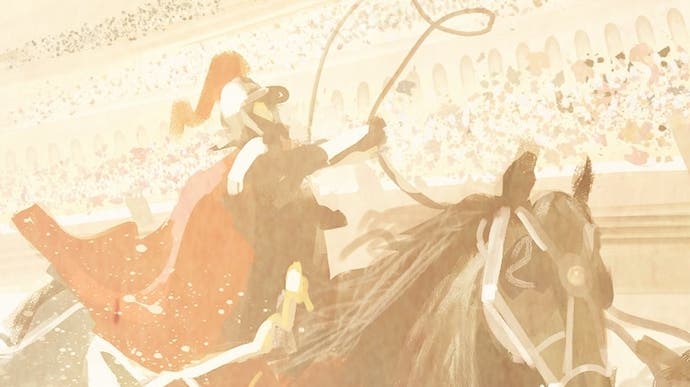Dicebreaker Recommends: 7 Wonders, a card game that lets you build a civilisation in under 20 minutes
Boredom is ancient history.
Dicebreaker Recommends is a series of monthly board game, RPG and other tabletop recommendations from our friends at our sibling site, Dicebreaker.
As a gameplay concept, civilisation-building is nothing new in the world of tabletop. In fact, video game series Sid Meier's Civilization was inspired by an earlier board game called Civilization - not created by Sid Meier, but British designer Francis Tresham.
7 Wonders is a tabletop game that captures the theme of civilisation-building, but provides a much more accessible and fast-paced experience than something like the video game. You might be building grand structures, amassing armies and researching scientific discoveries, but it's done in such a straightforward manner that makes becoming the next Alexander the Great feel like child's play.
In 7 Wonders, players become leaders of seven great ancient cities all looking to develop above and beyond their rivals. Each of these cities is based around one of the Seven Wonders of the World - think of the Hanging Gardens of Babylon and the Statue of Zeus - which players will be looking to construct, amongst various other daunting tasks. In a similar fashion to the Civilization video games, players can advance their city's development by investing in their military, culture and sciences across a period of several ages.
7 Wonders is - in part - a card-drafting game, meaning that players need to pass on their hand of cards once they've chosen one to keep. Considering how frustrating it is to sit there, doing nothing, whilst the player next to you dithers about picking their card, a good game of 7 Wonders naturally moves quickly. Despite this fast-paced element of the game, 7 Wonders requires players to decide on and commit to a strategy fairly early on if they want to have any chance of winning. Which might sound a little intimidating, but 7 Wonders' short playtime means that any potential losses don't sting as much as they might in an otherwise longer game.
Deciding which card categories to invest in is especially important early on because spreading your investments around yields very little in return. Instead, it's more advisable to choose a couple of the available options and roll with those. Card drafting does add an element of randomness to the proceedings, as you may never see the perfect follow-up card in a single game. However, the general categories of cards are broad enough that you'll usually find something that works further down the line.
The cards in 7 Wonders come in several different flavours, but the main types to look out for are military, cultural, commercial and scientific. As you might expect, choosing military cards will build you an army capable of attacking opponents - reducing their point totals at the end of each age - and defending against invasion from your neighbours. Cultural cards will often contain either victory points or rare resources that will help you to afford fancier cards later on. The commercial category makes acquiring certain resources easier and buying cards cheaper, whereas scientific cards unlock new ways of gaining victory points - if you can collect enough of the different types.
As you progress through a game of 7 Wonders, the cards you'll be handed will increase in cost, but subsequently offer even greater rewards. Depending on what ones you've already got, some cards in later ages can really net you some juicy benefits. There's nothing more satisfying than seeing the fruits of your labour eventually come to pass.

Whilst these later cards have fantastic rewards, they usually require more resources to obtain. Cards in the first age of 7 Wonders can often be taken free of charge, but the better cards will normally involve you having to pay a certain type of resource to get it. Each civilisation in 7 Wonders produces its own unique resource - such as clay or metal - whereas others can be sometimes found on cards you draft. However, you'll find yourself paying your neighbours for the resources they produce which, in turn, can also earn you a pretty penny when other players pay you. The trick is to be careful to spread your wealth across both your adjacent opponents, rather than funnelling money into one person's pocket.
Resources aren't just needed for getting cards, but also building your chosen wonder. Each wonder comes with its own unique benefits, including victory points and resources, and requires a certain amount of stuff to be constructed. There are three stages to building your wonder, with every completed stage giving you its corresponding benefit. Whilst wonders aren't essential to winning the game, they can play a pivotal role in your strategy if utilised at the right time and for the right reasons.
Even if something doesn't work out, that's the beauty of 7 Wonders. It's a board game all about working with what you have - whether that's cards, resources, money or even time. Every unsuccessful strategy will hopefully inform a successful one during another play. Consider getting good at 7 Wonders to be more of a marathon than a sprint - just one with chunks of clay, shards of glass vases and spear-wielding soldiers littering the track.


